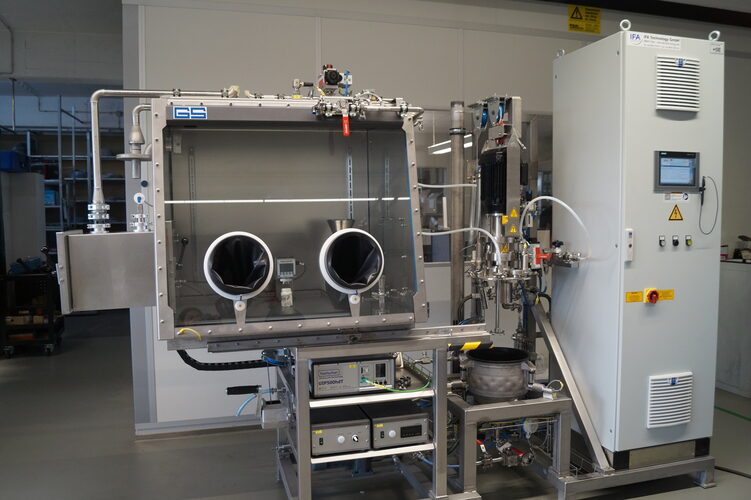As part of the TiKaBe research project, funded by the German Federal Ministry for Digital and Transport (BMDV), a laboratory mixing and dosing system was developed to safely process and investigate sensitive materials such as nanoparticles and solvents at laboratory and pilot scale. The work was carried out in close cooperation between IFA Technology, Fraunhofer ISE, and the supporting institutions PTJ and NOW GmbH (Funding Reference: 03B11028C).
The project focuses on the scientific examination of nanoparticle dispersion in catalyst pastes and on identifying process steps that ensure the safe handling of reactive and potentially hazardous substances. The system enables the gradual introduction of nanoparticles and solvents within a closed glovebox environment, semi-automated dosing, controlled processing of highly viscous media, and the use of ultrasound-based dispersion techniques. It allows systematic experimental series to analyse and refine relevant process parameters.
The Process includes:
- Semi-automated weighing & dosing
- Controlled mixing in the vessel
- Circulation via an eccentric screw pump
- Ultrasonic dispersion
- Process evaluation and adjustment
The laboratory system was designed with particular emphasis on process safety, operator protection, and experimental accuracy. The findings contribute to fundamental research in the field of catalyst paste development and provide a basis for future scientific progress. The project also demonstrates how research challenges can be addressed effectively through close collaboration between industry, research institutes, and public funding bodies.
“The biggest challenge was the safe handling of sensitive materials such as nanoparticles and solvents. We succeeded in developing a laboratory plant that, despite complex requirements, delivers outstanding process safety and an extremely low dead volume.”
Daniel Holzer, Project Manager IFA Technology
